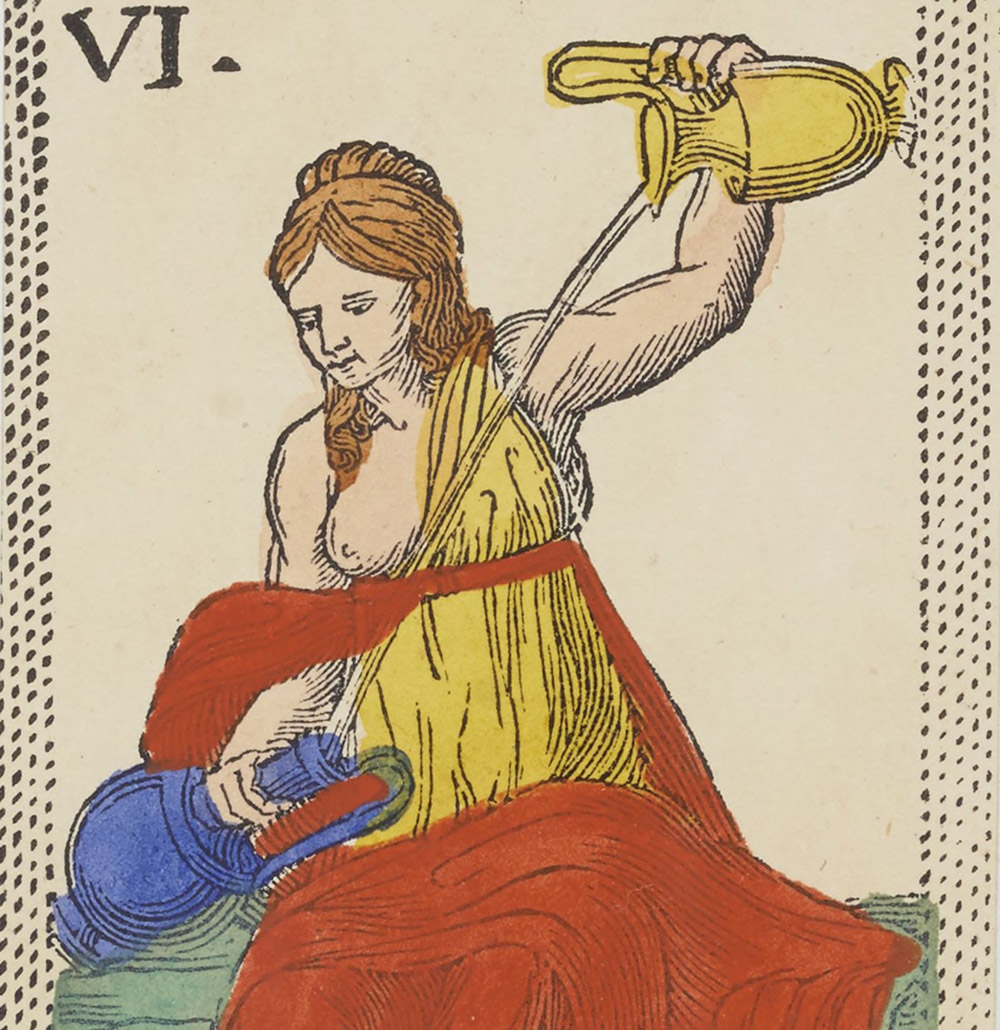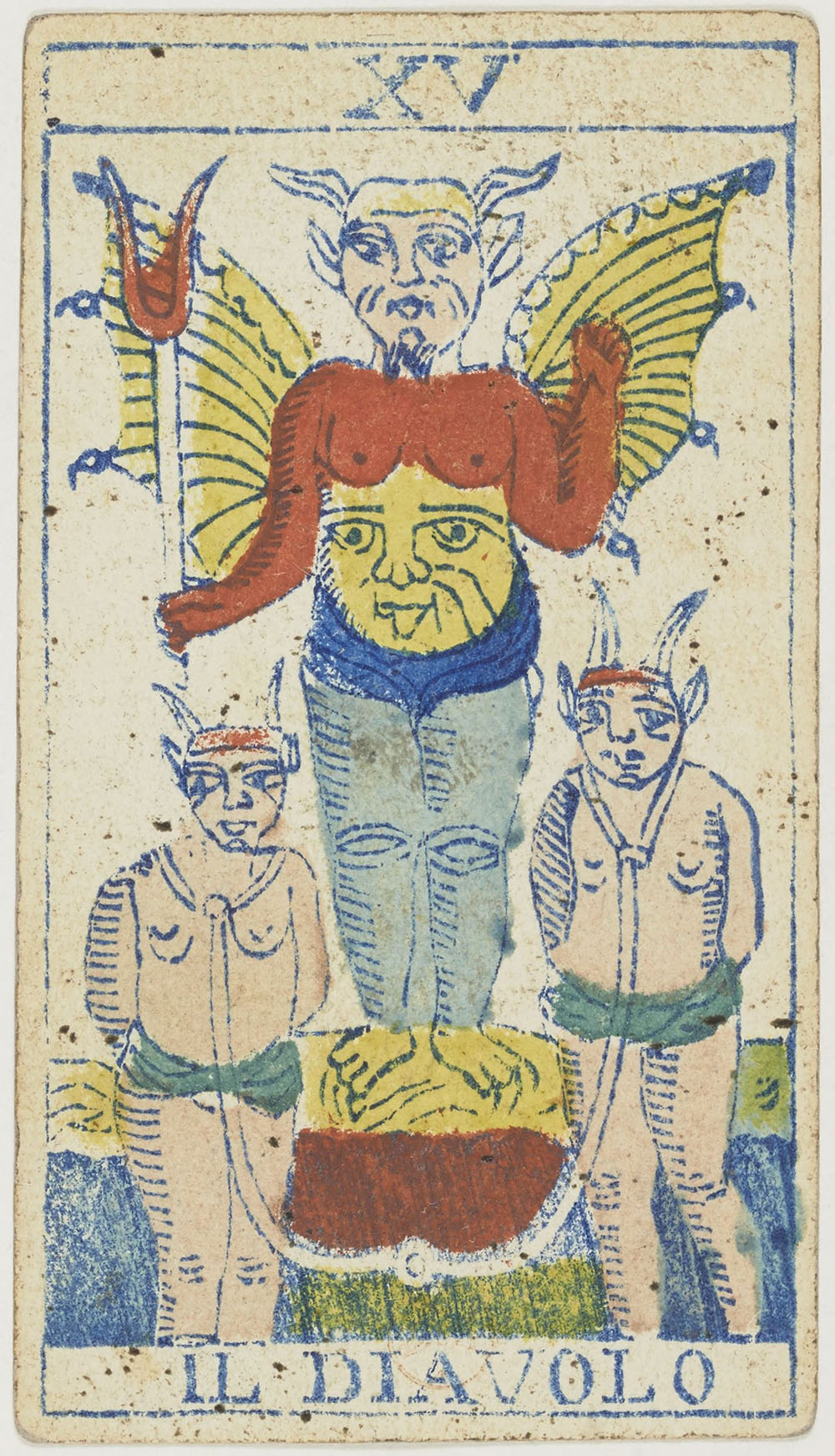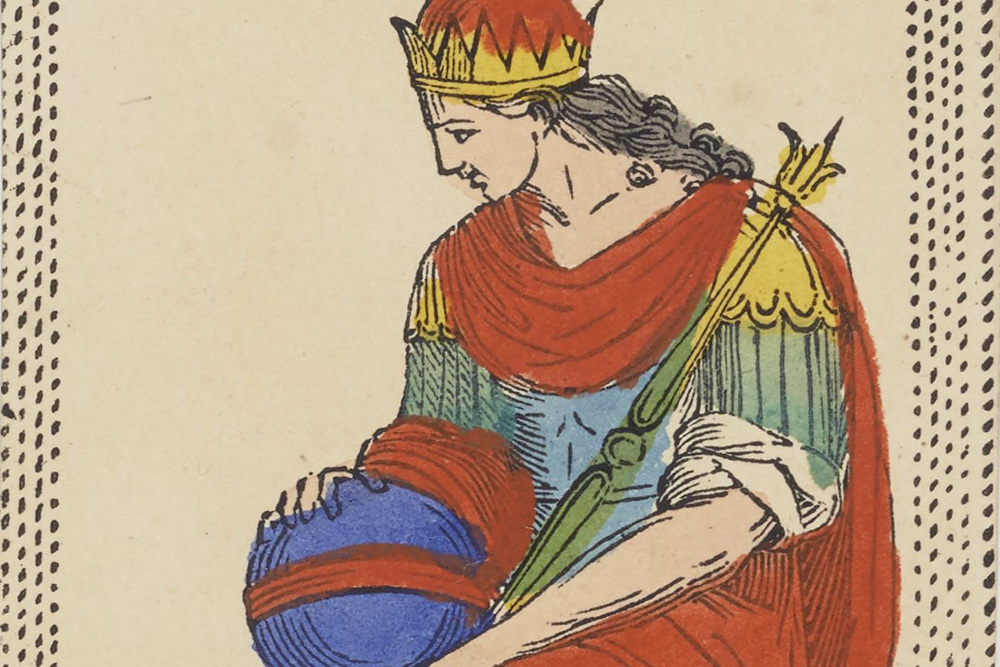Reading Lines
“For all men, certainly all imaginative men, must be for ever casting forth enchantments.”
—W.B. Yeats, Ideas of Good and Evil
WOULD IT SURPRISE anyone to learn I had a tarot deck or five? Or that I pray/meditate/sage the house when I have unwanted visitors? Despite my (thin) materialist façade and Woo Contempt (obvious projection), I have practiced witchcraft of one form or another for my entire adult life, mostly out of habit and home training. Keep track of the phases of the moon; throw salt; drink dandelion tea on your period; write your bad habits and burn them, drown them, tie them with string. OCD begins in a mind gripped with obsession, one of those minds whose contents seem more real than the external world. The compulsions ritualize action to ameliorate the paralysis of the obsession. They grease a stuck wheel and make forward motion possible.
I draw the Empress card. The first step to enlightenment is sensuality. She’s a still, big girl in an oversized nightgown. She symbolizes devious, prodigious nature. Exasperating. I am a big, still girl—I don't need a reminder. I need a Knight of Wands or something else dynamic, The Chariot. I call Mom. Unfortunately, she always says I’ll be fine, fantastic even. Mother love drowns bad news. But some days I am not fine and I need practical guidance. I was not reared by utilitarians, and what skills I have in that arena came late and were hard won. I understand mystical symbols, though, and know how to put them to use—relatively practical, all things considered.

Temperance. Minchiate tarot card deck, Florence, 1860-1890. Detail.
MY PERSONAL CARD is Temperance. I don’t wait to draw it; I keep one in my bag for courage. Reason unspecified, I just always have liked it because it makes me think of a duck paddling madly under the smooth surface of a pond. On the inside, I am intemperate—a bucket of cross-purposes, a real maniac. I can’t make a decision. Too deregulated. I’m petty and horny and vain. Outside, I aim for equipoise.
The cards, the concrete acting out of desired outcomes (ritual) suit me, maybe because there’s nothing out there insisting I believe without method. Also, it works. Not in a “closet full of furs” way, but by changing your consciousness just enough to feel less powerless in the face of a fathomless universe. I don't know about you, but the mind set required for full throttle determinism makes it difficult for me to get out of bed. You’ve got to feel choice in order to survive, even if choice isn’t real. W.B. Yeats, in his years as a member of the occult secret society Order Of the Golden Dawn, describes my predicament perfectly when he says:
For all men, certainly all imaginative men, must be for ever casting forth enchantments, glamours, illusions; and all men, especially tranquil men who have no powerful egotistic life, must be continually passing under their power.
I like that. Better to draft your own delusions than fall prey to the delusions of others. Given the endless variety of interpretations available to us, why not choose to see subtle energies at play? Why not behave as if we are the bosses of those energies? What’s a writer anyway, but someone who goes about convinced, at least a little bit, of her own divinity?
Yeats, like me, had a complex relationship with his native Protestantism, a love life of trial and error, and a wide streak of spiritual dilettantism. Unlike me, he was also a genius, and his esoteric leanings deeply informed his work. It’s hard to imagine any of his poetry without the whimsy and grandeur of his kooky theories. It’s what gives us the creeps in “The Second Coming.” Remember that “rough beast” with the human head and the lion’s body, slouching through the desert where Aleister Crowley performed arcane gay sex rituals—on his honeymoon? (An aside: Wives were unimaginably tolerant at this time. Yeats’s wife, twenty-five years his junior—whose automatic writing inspired many of his later poems—let him get his other needs met all over town.)

The Devil. Piedmontese tarot deck, F. F. Solesio, 1865.
I DRAW the Devil. He’s a big charming goat with two pet humans, chains looped gently around their necks. I am stuck in a loop with work, and desperate to get out of it. Is this Commitment or Addiction? Loyalty or Ambivalence? I can’t tell if I need more stubborn conviction or more fearlessness. I do know I tend to suffer longer than necessary to figure things out, but the Devil says maybe I like it. This predicts nothing, but shows me what I already know, which comforts me.
Even the cleverest of us need magical thinking to tolerate all the “mere anarchy loosed upon the world.” Some drink and grow bitter or ruin the lives of their wives. Some spend years lost in ancient Hindu texts or look to architecture for spiritual guidance. I’m apt to give myself a hard time about this, as if I should suffer materialism nobly, be one of those best that “lack all conviction” but I have a long to-do list and a short fuse, and people depend on me to ameliorate the hell out of my obsessions. I make a poor atheist. Physicists and mathematicians now say that we live in an improbable world; that all these atoms smashing about, making consciousness, more likely originate from a computer simulation than from the sky and sea and dirt our senses perceive. As an allegory, the computer simulation lacks charm, but I understand the impulse. Whatever meaning machine you spend your life staring at will eventually begin to look like God. Even words. Even cards.
Wendy Bourgeois is a poet and writer. In the winter 2018 issue she offered a public apology.
